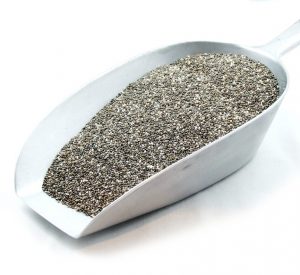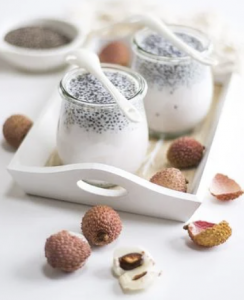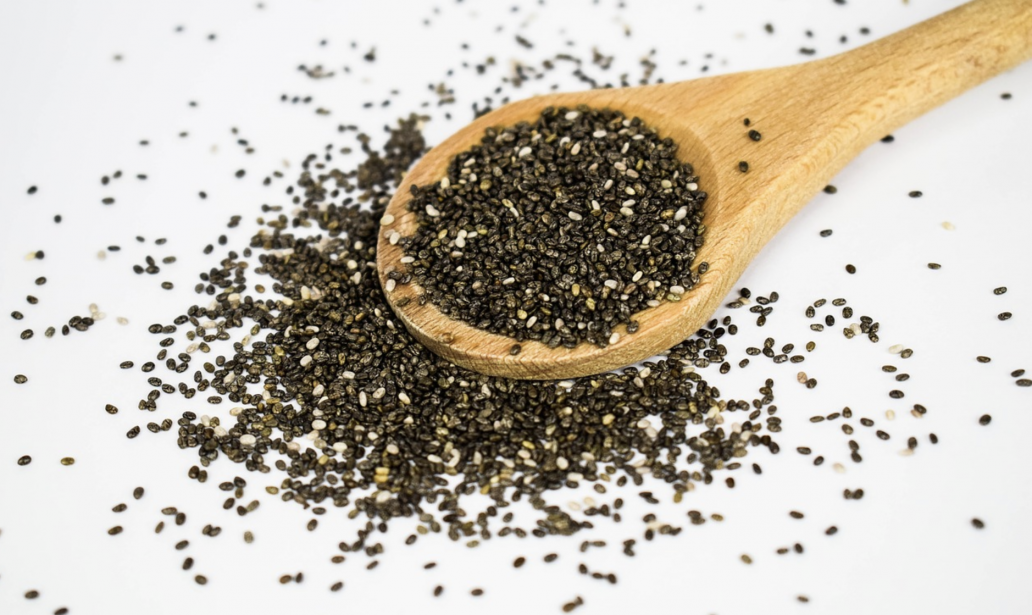In recent years we have been hearing a lot about the benefits of chia, but chia has been around for quite some time.
Native to Mexico and northern Guatemala, chia seeds were one of the main staples in Mayan and Aztec diets as early as 3,500 B.C. They were used not only in these ancient cultures as medicines and food, but consumed by their warriors to produce strength and stamina.
In fact, the word “chia” translates to the Mayan word for “strength.”
A naturally gluten-free grain, the chia plant’s tiny mottled brown and white seeds and the oils inside them are now being recognised for off-the-charts health value, including attributes such as lowering the risk of stroke and heart disease.
Used in other parts of the world as an energy enhancer or for medicinal use, growing interest in the marketplace in recent time has led to its inclusion in the Western diet in a wide variety of foods, including cooking oil and supplements.
Today, chia seeds and plants are used in salad dressings, fruit juices, yogurt, cereals, cakes, cookies, bread, protein shakes, and on salads and sandwiches.
Health Benefits of Chia

High in protein, omega-3 represents an impressive 75 percent of the total oil content. These little seeds are also rich in valuable amino acids, antioxidants, and flavonoids, including chlorogenic acid, caffeic acid, myricetin, quercetin, and kaempferol. Along with other benefits, studies show quercetin and kaempferol to have possible have preventative effects against post-menopausal bone loss.
While chia seeds contain zero cholesterol or sodium, they possess high stores of calcium (18 percent of the RDA), phosphorus (27 percent of the RDA), and manganese (30 percent of the RDA). Niacin, a B vitamin, is another chia seed ingredient that helps reduce LDL (bad) cholesterol levels in the blood, prevent nervous system disorders, and increases GABA activity inside the brain, which in turn helps reduce anxiety and even lessen the effects of Alzheimer’s.
Chia also contains high amounts of dietary fibre – 42 percent of the daily recommended value – which helps you feel full faster and may contribute to weight loss. Chia seeds are an excellent fibre source because of their unique blend of insoluble along with soluble fiber, which creates a gelatinous effect when soaked in liquid.
This eases bowel movements, but also contributes to necessary fermentation of foods throughout the length of the colon, especially the end at the end where colon cancer occurs most often. Fibre also has the additional benefit of inhibiting the body’s penchant for breaking food down to sugars, resulting in more stable blood glucose levels.
Nutrition Facts
Serving Size: One oz. (28 grams) chia seeds
Calories: 137
Saturated Fat: 1 g
Carbohydrates: 14 g
Sugar: 0 g
Fibre: 11 g
Protein: 4 g
Sodium: 5 mg
Chia Healthy Recipe: Chia Pudding Parfait

Ingredients
1/3 cup chia seeds
1 cup Vanilla Almond or Coconut Milk
2 tbsp. honey
1/2 tsp. vanilla extract
1/4 tsp. sea salt
Method
Measure out the chia seeds, almond milk, extracts, and honey, mix well and refrigerate for at least 30 minutes or even overnight so the chia seeds absorb the moisture and become thick and gelatinous, like a pudding.
Spoon into a glass or parfait cup.
Add all your favorite toppings. That’s it! Enjoy!

